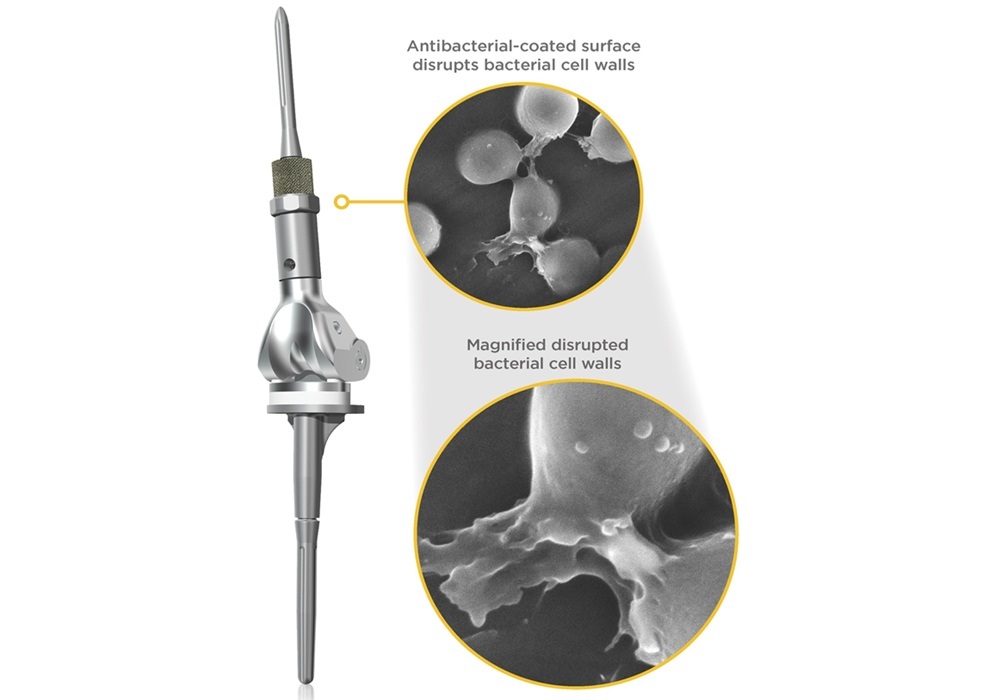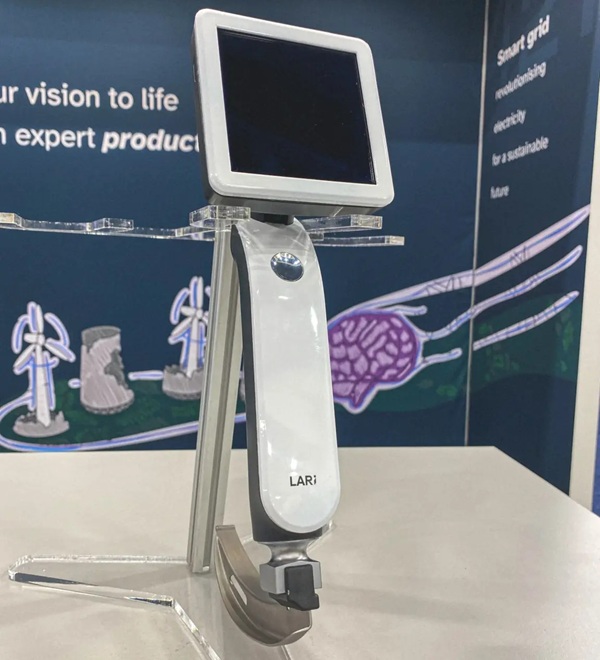Novel Antibacterial Coating Prevents Intraoperative Bacterial Contamination in Orthopedic Implants
Posted on 13 Jan 2025
Orthopedic implant-related infections present significant clinical challenges and have serious negative impacts on patients. Periprosthetic joint infection (PJI) has a survival rate lower than that of several cancers and is projected to cost healthcare systems billions of dollars by 2030. It is estimated that 60-70% of all early and delayed-onset PJIs (within 3 months and 12-24 months post-surgery) are caused by intraoperative contamination during the procedure. Despite numerous precautions, bacterial contamination of implants continues to be a significant issue, with potentially severe consequences for patients. Now, a new antibacterial coating applied to orthopedic implants could help mitigate intraoperative bacterial contamination.
Onkos Surgical (Parsippany, NJ, USA) has developed NanoCept, a groundbreaking antibacterial coating technology that has been shown to protect implants from bacterial contamination at the time of surgery, before implantation. The NanoCept coating, when applied, aims to reduce bacterial contamination on the implant surface by killing bacteria that are deposited onto the device from the operating environment. This antibacterial technology is based on a proprietary coating that has shown excellent safety and biocompatibility in preclinical in vitro and in vivo studies. It provides broad-spectrum efficacy while preventing the development of bacterial resistance through a non-eluting, nanoscale surface.

NanoCept Antibacterial Technology has already been successfully used in various surgical procedures. Onkos received De Novo market authorization from the Food and Drug Administration (FDA) in April 2024 for the NanoCept Antibacterial Technology. Data submitted in support of the De Novo application demonstrated that NanoCept achieved up to a 99.999% (5-log reduction) kill rate in standardized in vitro testing against bacteria commonly found in operating room environments.
"Limb salvage and revision procedures are challenging, and the rate of complication is much higher than most index orthopedic procedures," said Steven Gitelis, MD, Director of Musculoskeletal Oncology at Rush University Medical Center and Chief Medical Officer of Onkos Surgical. "The risk of implant infection is on my mind every time I take a patient to the operating room, and this is especially true for patients with bone cancer, as they are more susceptible. The NanoCept Technology represents a significant advancement in the preventative measures my colleagues and I use to mitigate the potentially devastating complications related to intraoperative bacterial contamination of implants. It has the potential to create a paradigm shift in implant selection and is a valuable tool surgeons will now have that may help address an unsolved clinical problem."
Related Links:
Onkos Surgical














